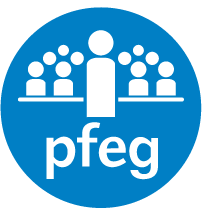Modern Languages
With the focus at GCSE level to facilitate the Ebacc group of subjects, learning a foreign language is becoming more and more important. At South Charnwood we focus on French as we have teachers who are specialists in that language. We also recognise the importance that learning a language has in the world of work and the doors that can be opened because of it. There is a national shortage of linguists and anyone who can express themselves in another language will know what confidence that can bring.
In teaching French at South Charnwood we focus on three core values:
Language Learning
We intend all our pupils to learn enough grammar and vocabulary to be able to express themselves in French. This will involve all the key skills of listening, speaking, reading and writing and incorporate a number of learning techniques. This comprises vocabulary learning, retention, interleaving repetition and revision ideas.
We include a wide breadth of activities, with particular focus on GCSE ‘style’ assessments right from Year 7, for example role plays, describing a photo and reading a variety of material.
Successful Transitions
We have a sequenced and mapped ‘Learning Journey’ and, in tandem with our Dynamo and Studio courses, ensure that the National Curriculum is matched in our broad scheme of learning.
We build upon learning that takes place at our feeder primary schools but allow for those pupils with more limited experience to start ‘from scratch’. From Year 7 onwards there are differentiated lessons that allow those pupils who can, to stretch and challenge themselves.
We aim to prepare our pupils for further study at Key Stage 5 and beyond, into their working lives.
Cultural Capital
We support our language lessons with cultural information about the Francophone world and give pupils a taste of a wider society. We run a successful French trip when possible that offers hands-on experience of life in another country.
With Brexit comes new opportunities for our pupils to make their way in the world and branch out, forging new paths in the wider world.
In Year 7, all pupils learn French in mixed ability tutor groups. They follow the latest “Dynamo” course to ensure that key details are studied, but there is a wide variety of ‘branches’ off the main course. For example, some topics may be skimmed over quickly to gain the key language for the assessment; while some, more interesting areas are expanded into mini-projects. In Years 8 and 9, pupils are put into ability groups and continue the course with Dynamo 2 and 3, all the while gaining confidence in the skills they will need to take the GCSE exams. This includes practice tests in listening, speaking, reading and writing. In Years 10 and 11 the pupils follow the “Studio” for AQA GCSE course, designed for the 1-9 curriculum, and broaden their horizons ready for the four exams at the end of Year 11.
The courses are all designed to reduce the amount of vocabulary and rote learning and focus on key grammatical points, giving each one a context on which to ‘hang’ the language. An example is the subject of food and drink: the purpose of this is not to learn a large amount of different foods and drinks but to show that you can take part in a role-play and use conversational and transactional language. The four skills we study in French are listening, speaking, reading and writing and a combination of these is usually planned into lessons, unless there is a focus on one in particular. Gifted pupils can expect extension work to really push them, sometimes including ‘regalia’ gathered from genuine French sources. Any pupils in need of a little extra help are guaranteed carefully differentiated work and only have to ask their teacher for support. We track and monitor pupils from when they start at South Charnwood to ensure everyone reaches his or her potential and intervene in cases of underachievement. To reduce stress before tests, we have a regular homework to learn ten items of vocabulary. There is a quick ten-question test to monitor this and learn how best to learn.
Each pupil receives two books at the beginning of the year. The green book is for neat work and should be used for revision. This work will be checked by teachers, constructive feedback given and targets set. It also contains a chart to show progress in the four skills during the year. The purple book is for planning, rough work and games. This is not normally marked except to check rough drafts. ICT rooms or Chromebooks are often used to extend learning. This includes an online suite to accompany the “Dynamo” and “Studio” courses, including online homework. We also subscribe to thisislanguage.com, which offers a wide variety of short video clips of real French being spoken and to Memrise, which is a vocabulary based program. There are games, activities and comprehension exercises as well as support for vocabulary and grammar learning. Finally, at GCSE level we have access to ExamPro, which allows our pupils to access AQA-approved exam questions in all four skills. The impact of ICT is also evident in our classrooms, equipped with interactive whiteboards for group discussion work, games and explaining languages. We have video and audio recording equipment for presentations as well as assessed pieces of work.
Members of the department, in conjunction with the Humanities department, have also organised a popular trip to France in Year 7, which includes a visit to the battlefields of the First World War, a tour of the local area (Rue), a visit to a market (Berck) and a challenge to complete there, activities at the Château in which we stay (Le Château du Broutel), a camp fire, a visit to a bakery and a trip to Disneyland (Paris)!


















